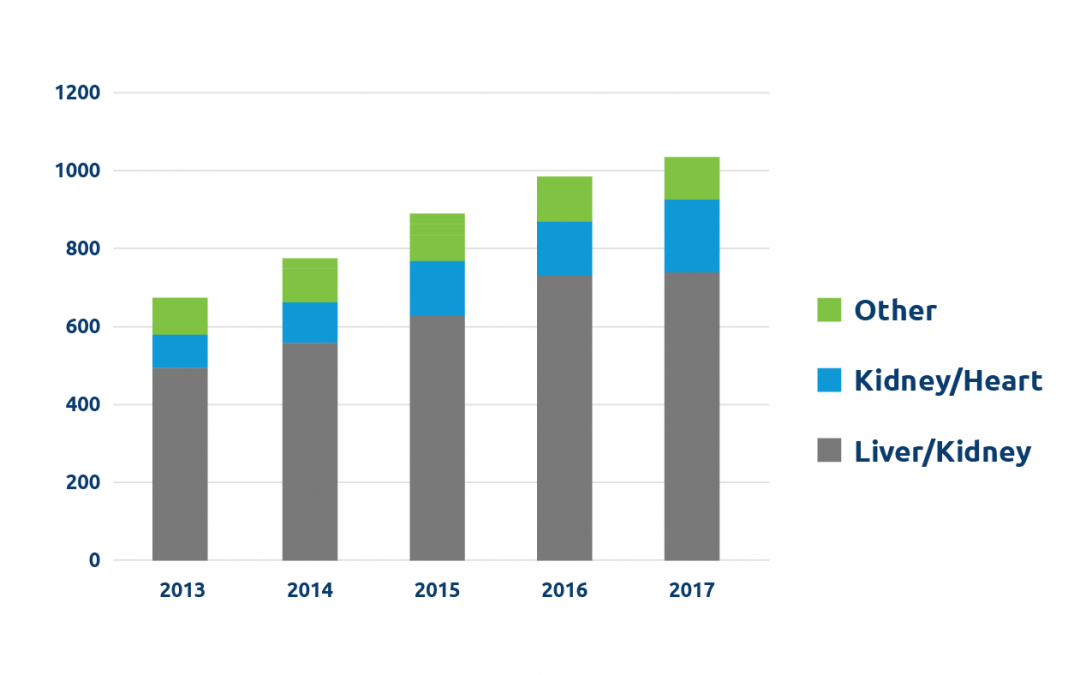in focus
Multi-organ transplant (MOT) combinations and their frequencies performed in the U.S. from 2013–2017
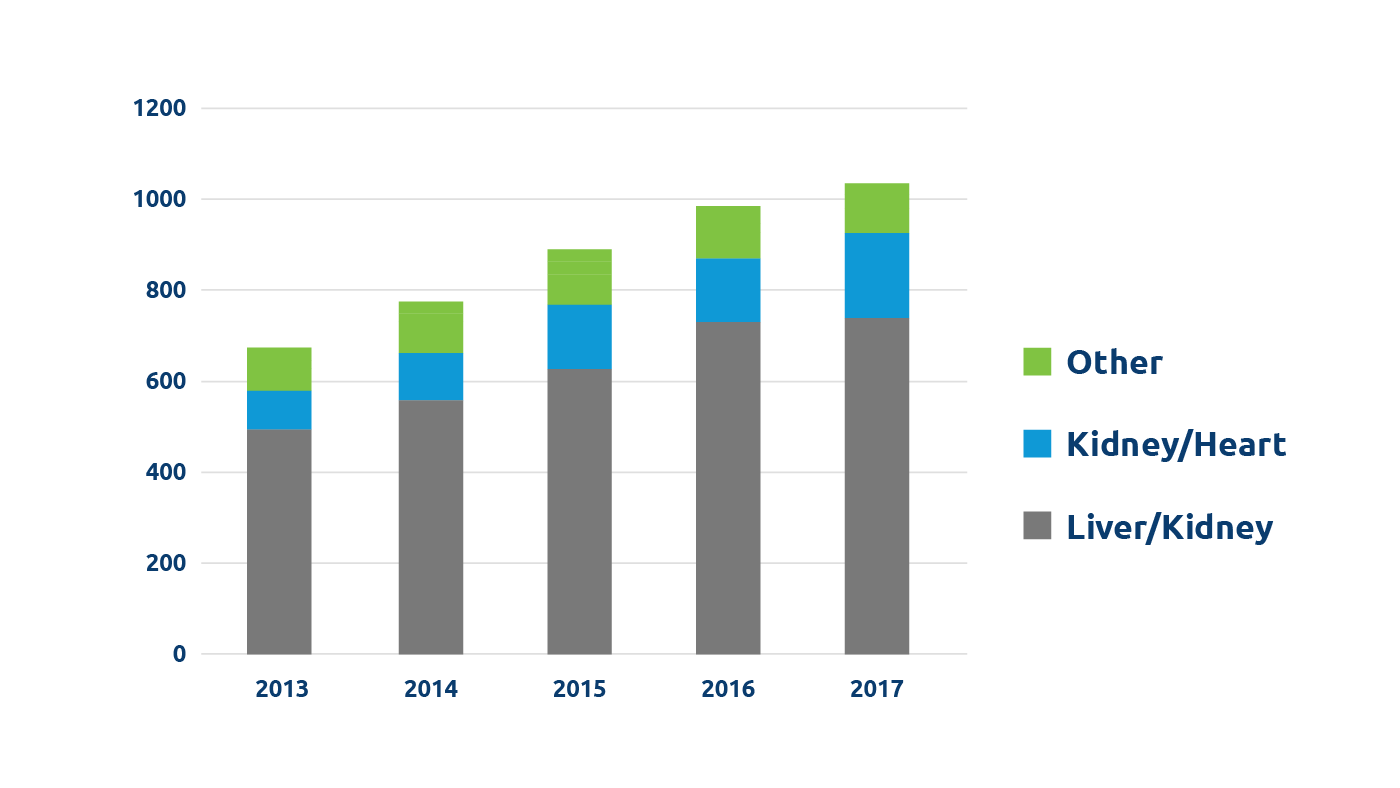
Based on data from the national Organ Procurement and Transplantation Network (OPTN).
The number of multi-organ transplants (MOT), excluding kidney/pancreas and heart/lung, has nearly doubled in the past six years from 625 procedures in 2012 to 1,035 in 2017.
This increase raises ethical questions that call for greater consistency in allocation strategy (currently, allocation for multi-organ transplant (MOT) combinations is not consistent across organ types). The OPTN Ethics Committee analyzed policy and relevant literature focusing on the potential conflict in the principles of equity and utility in the allocation of MOT.
For example, the graph below shows that MOT recipients commonly receive lower KDPI kidneys—or those that have longer-than-expected graft function—than single-organ transplant (SOT) recipients. This could disadvantage SOT candidates because they are less likely to receive kidneys with the longest expected function.
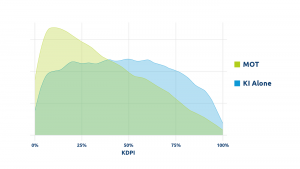
Distribution of KDPI for deceased donor kidney recipients by multi-organ (MOT) status during 2015-2017
In focus
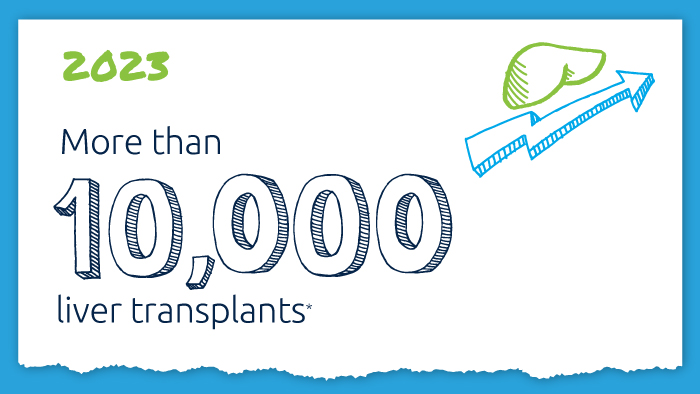
A decade of record increases in liver transplant
10,660 liver transplants, the most ever in a year.
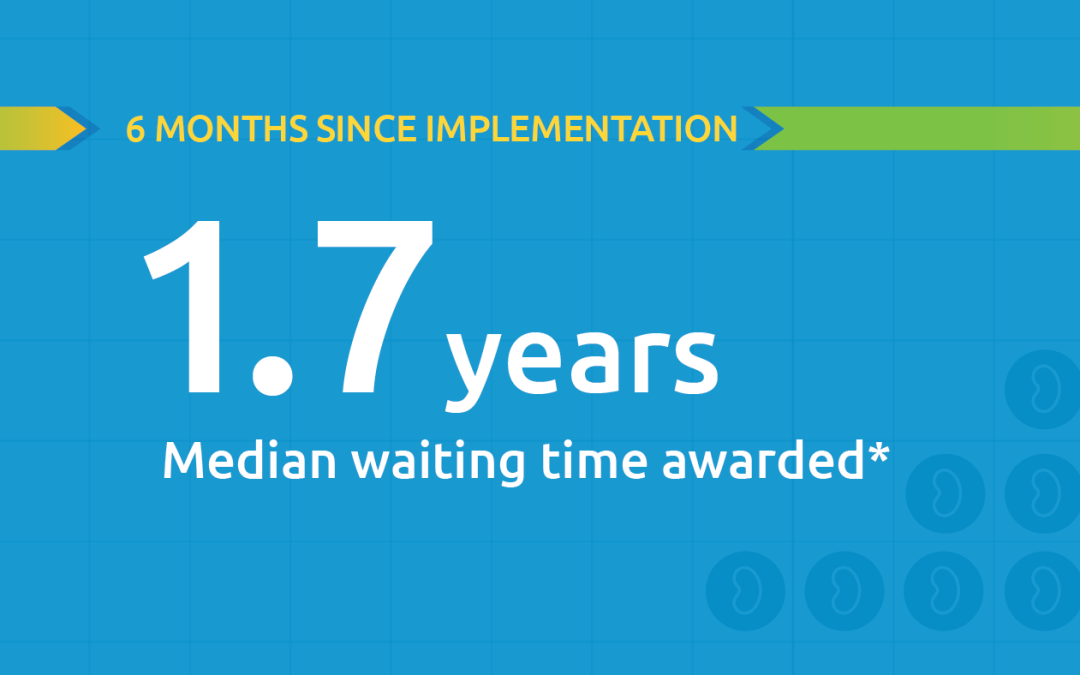
Black kidney candidates are receiving waiting time modifications, helping them get the organs they need
Latest kidney monitoring report shows two new kidney polices are working as intended

Research in focus: examining organ offers
Three recent studies from UNOS researchers examine offer acceptance practices and impact of Offer Filters tool.
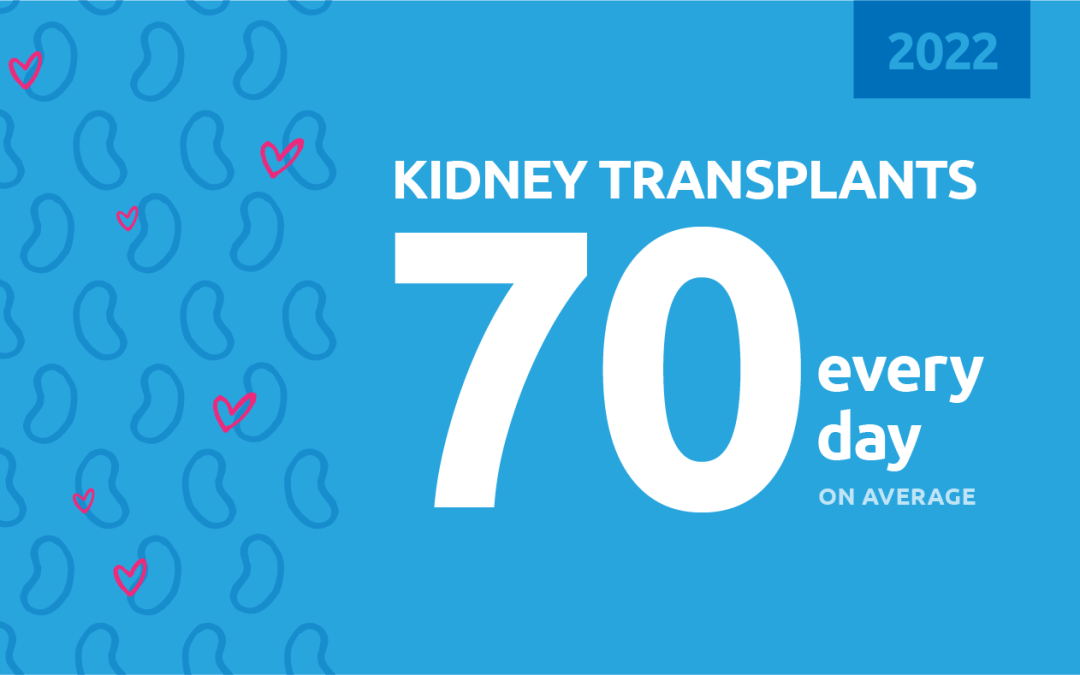
New milestone reached in kidney donation and transplant
For the first time, more than 25,000 kidney transplants were performed in a single year

